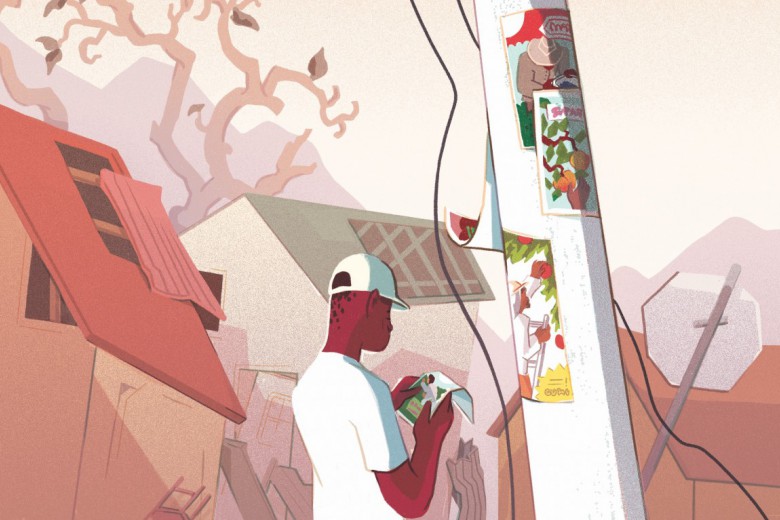It’s been an enormous pleasure to return to Briarpatch to guest edit this issue. It was particularly charming to see, in my brief tenure, one of my favourite pieces from Briarpatch – the Settler Treaty Card subvertisement that Tyler McCreary and I put together for the June/July 2008 issue – enjoy a small resurgence. The fake advertisement – “The Settler Treaty Card: You Can’t Live Here Without It TM” – flipped the idea of an Indian Status Card on its head to get across the idea that we’re all treaty people. We all enjoy rights and responsibilities with regard to our shared access to this land because of the treaties that were signed between sovereign nations.
A month back, while I was in the office working on this issue, Val and I decided to repost the Settler Treaty Card graphic to Briarpatch’s Facebook page because of its resonance with the key messages of the Idle No More movement. We were amazed by the response: within 24 hours the post had been shared over a thousand times. It obviously tapped into a current concern – just one small indication of how Idle No More has opened a crucially important space for discussing relationships between First Nations and the Crown, First Nations people and settlers, and between all of us and the land we depend on.
So with Indigenous social movements and solidarity forefront in people’s minds, we were eager to devote some space in this issue to Idle No More – the movement and the countless conversations it has sparked, as well as the broader context of women’s leadership in resurgent Indigenous struggles (see Jennifer Kennedy’s profile of five Indigenous women leaders from across the hemisphere). We put the call out for submissions for a photo essay and received over 100 submissions from photographers across the country and beyond – another sign of how Idle No More has captured the imaginations and inspired the mobilization of thousands upon thousands across the country.
Like all movements, Idle No More will eventually run its course. But whatever our relationship to this land, we all have much to learn from this movement, if we’re willing to listen.



